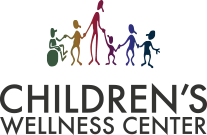Colic
Newborns with colic have long-lasting periods of crying and fussing. The cause of colic is unknown but is probably related to the baby’s temperament. It occurs in infants from birth to age 3 months. Crying usually occurs around the same time each day, in the evening most often. Episodes may last up to three hours and are obviously very stressful for parents. The baby’s face may become red and flushed, the belly may seem tense, and he/she may pull the legs up over the belly. It may seem like nothing you do helps to stop the crying and the baby may simply continue crying until he or she falls asleep from exhaustion. Sometimes the crying finally stops when the baby passes gas or has a bowel movement.
Many conditions mimic colic including formula intolerance, formula allergy, swallowing excess air, gastroesophageal reflux, urinary tract infection, and many others. It is necessary for us to see your child in the office to determine what is causing the problem. If crying is severe, prolonged, or if accompanied by other symptoms such as fever, vomiting, diarrhea, or constipation we should evaluate the child right away.
There are several things to try which may soothe a crying baby. Avoid overstimulation, especially around feeding time. Try soothing techniques such as rocking or quiet music. Improve feeding techniques by burping your child well. Try not to get too upset yourself, even though this can be difficult. If you really need a break, there’s no harm in leaving your baby cry in the crib for a few minutes or with another caretaker.
